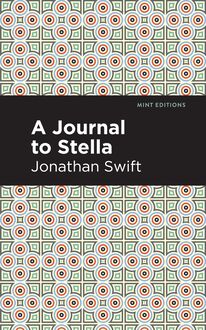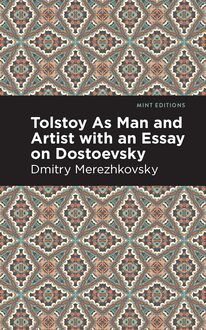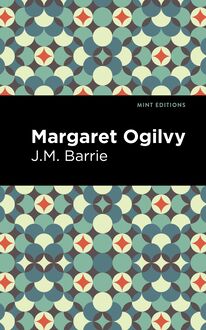-
 Univers
Univers
-
 Ebooks
Ebooks
-
 Livres audio
Livres audio
-
 Presse
Presse
-
 Podcasts
Podcasts
-
 BD
BD
-
 Documents
Documents
-
- Cours
- Révisions
- Ressources pédagogiques
- Sciences de l’éducation
- Manuels scolaires
- Langues
- Travaux de classe
- Annales de BEP
- Etudes supérieures
- Maternelle et primaire
- Fiches de lecture
- Orientation scolaire
- Méthodologie
- Corrigés de devoir
- Annales d’examens et concours
- Annales du bac
- Annales du brevet
- Rapports de stage
La lecture à portée de main
Vous pourrez modifier la taille du texte de cet ouvrage
Découvre YouScribe en t'inscrivant gratuitement
Je m'inscrisDécouvre YouScribe en t'inscrivant gratuitement
Je m'inscrisEn savoir plus
Vous pourrez modifier la taille du texte de cet ouvrage
En savoir plus

Description
Of Human Bondage (1915) is a novel by W. Somerset Maugham. Inspired by his experiences as an orphan and young student, Maugham composed his masterpiece. Adapted several times for film, Of Human Bondage is a story of tragedy, perseverance, and the eternal search for happiness which drives us as much as it haunts our every move. Orphaned as a boy, Philip Carey is raised in an affectionless household by his aunt and uncle. Although his Aunt Louisa tries to make him feel welcome, William proves an uncaring, vindictive man. Left to fend for himself most days, Philip finds solace in the family’s substantial collection of books, which serve as an escape for the imaginative boy. Sent to study at a prestigious boarding school, Philip struggles to fit in with his peers, who abuse him for his intelligence and club foot. Despite his struggles, he perseveres in his studies and chooses his own path in life, moving to Heidelberg, Germany and denying his uncle’s wish that he attend Oxford. As he struggles to become a professional artist, Philip learns that one’s dreams are often unsubstantiated in the world of the living. Of Human Bondage is a tale of desire, disappointment, and romance by a master stylist with a keen sense of the complications inherent to human nature. With a beautifully designed cover and professionally typeset manuscript, this edition of W. Somerset Maugham’s Of Human Bondage is a classic work of British literature reimagined for modern readers.
Sujets
Informations
| Publié par | Mint Editions |
| Date de parution | 28 mai 2021 |
| Nombre de lectures | 1 |
| EAN13 | 9781513288253 |
| Langue | English |
Informations légales : prix de location à la page 0,0750€. Cette information est donnée uniquement à titre indicatif conformément à la législation en vigueur.
Extrait
Of Human Bondage
W. Somerset Maugham
Of Human Bondage was first published in 1915.
This edition published by Mint Editions 2021.
ISBN 9781513283234 | E-ISBN 9781513288253
Published by Mint Editions®
minteditionbooks.com
Publishing Director: Jennifer Newens
Design & Production: Rachel Lopez Metzger
Project Manager: Micaela Clark
Typesetting: Westchester Publishing Services
C ONTENTS I II III IV V VI VII VIII IX X XI XII XIII XIV XV XVI XVII XVIII XIX XX XXI XXII XXIII XXIV XXV XXVI XXVII XXVIII XXIX XXX XXXI XXXII XXXIII XXXIV XXXV XXXVI XXXVII XXXVIII XXXIX XL XLI XLII XLIII XLIV XLV XLVI XLVII XLVIII XLIX L LI LII LIII LIV LV LVI LVII LVIII LIX LX LXI LXII LXIII LXIV LXV LXVI LXVII LXVIII LXIX LXX LXXI LXXII LXXIII LXXIV LXXV LXXVI LXXVII LXXVIII LXXIX LXXX LXXXI LXXXII LXXXIII LXXXIV LXXXV LXXXVI LXXXVII LXXXVIII LXXXIX XC XCI XCII XCIII XCIV XCV XCVI XCVII XCVIII XCIX C CI CII CIII CIV CV CVI CVII CVIII CIX CX CXI CXII CXIII CXIV CXV CXVI CXVII CXVIII CXIX CXX CXXI CXXII
I
T he day broke gray and dull. The clouds hung heavily, and there was a rawness in the air that suggested snow. A woman servant came into a room in which a child was sleeping and drew the curtains. She glanced mechanically at the house opposite, a stucco house with a portico, and went to the child’s bed.
“Wake up, Philip,” she said.
She pulled down the bed-clothes, took him in her arms, and carried him downstairs. He was only half awake.
“Your mother wants you,” she said.
She opened the door of a room on the floor below and took the child over to a bed in which a woman was lying. It was his mother. She stretched out her arms, and the child nestled by her side. He did not ask why he had been awakened. The woman kissed his eyes, and with thin, small hands felt the warm body through his white flannel nightgown. She pressed him closer to herself.
“Are you sleepy, darling?” she said.
Her voice was so weak that it seemed to come already from a great distance. The child did not answer, but smiled comfortably. He was very happy in the large, warm bed, with those soft arms about him. He tried to make himself smaller still as he cuddled up against his mother, and he kissed her sleepily. In a moment he closed his eyes and was fast asleep. The doctor came forwards and stood by the bed-side.
“Oh, don’t take him away yet,” she moaned.
The doctor, without answering, looked at her gravely. Knowing she would not be allowed to keep the child much longer, the woman kissed him again; and she passed her hand down his body till she came to his feet; she held the right foot in her hand and felt the five small toes; and then slowly passed her hand over the left one. She gave a sob.
“What’s the matter?” said the doctor. “You’re tired.”
She shook her head, unable to speak, and the tears rolled down her cheeks. The doctor bent down.
“Let me take him.”
She was too weak to resist his wish, and she gave the child up. The doctor handed him back to his nurse.
“You’d better put him back in his own bed.”
“Very well, sir.” The little boy, still sleeping, was taken away. His mother sobbed now broken-heartedly.
“What will happen to him, poor child?”
The monthly nurse tried to quiet her, and presently, from exhaustion, the crying ceased. The doctor walked to a table on the other side of the room, upon which, under a towel, lay the body of a still-born child. He lifted the towel and looked. He was hidden from the bed by a screen, but the woman guessed what he was doing.
“Was it a girl or a boy?” she whispered to the nurse.
“Another boy.”
The woman did not answer. In a moment the child’s nurse came back. She approached the bed.
“Master Philip never woke up,” she said. There was a pause. Then the doctor felt his patient’s pulse once more.
“I don’t think there’s anything I can do just now,” he said. “I’ll call again after breakfast.”
“I’ll show you out, sir,” said the child’s nurse.
They walked downstairs in silence. In the hall the doctor stopped.
“You’ve sent for Mrs. Carey’s brother-in-law, haven’t you?”
“Yes, sir.”
“D’you know at what time he’ll be here?”
“No, sir, I’m expecting a telegram.”
“What about the little boy? I should think he’d be better out of the way.”
“Miss Watkin said she’d take him, sir.”
“Who’s she?”
“She’s his godmother, sir. D’you think Mrs. Carey will get over it, sir?”
The doctor shook his head.
II
I t was a week later. Philip was sitting on the floor in the drawing-room at Miss Watkin’s house in Onslow gardens. He was an only child and used to amusing himself. The room was filled with massive furniture, and on each of the sofas were three big cushions. There was a cushion too in each arm-chair. All these he had taken and, with the help of the gilt rout chairs, light and easy to move, had made an elaborate cave in which he could hide himself from the Red Indians who were lurking behind the curtains. He put his ear to the floor and listened to the herd of buffaloes that raced across the prairie. Presently, hearing the door open, he held his breath so that he might not be discovered; but a violent hand pulled away a chair and the cushions fell down.
“You naughty boy, Miss Watkin W ILL be cross with you.”
“Hulloa, Emma!” he said.
The nurse bent down and kissed him, then began to shake out the cushions, and put them back in their places.
“Am I to come home?” he asked.
“Yes, I’ve come to fetch you.”
“You’ve got a new dress on.”
It was in eighteen-eighty-five, and she wore a bustle. Her gown was of black velvet, with tight sleeves and sloping shoulders, and the skirt had three large flounces. She wore a black bonnet with velvet strings. She hesitated. The question she had expected did not come, and so she could not give the answer she had prepared.
“Aren’t you going to ask how your mamma is?” she said at length.
“Oh, I forgot. How is mamma?”
Now she was ready.
“Your mamma is quite well and happy.”
“Oh, I am glad.”
“Your mamma’s gone away. You won’t ever see her any more.” Philip did not know what she meant.
“Why not?”
“Your mamma’s in heaven.”
She began to cry, and Philip, though he did not quite understand, cried too. Emma was a tall, big-boned woman, with fair hair and large features. She came from Devonshire and, notwithstanding her many years of service in London, had never lost the breadth of her accent. Her tears increased her emotion, and she pressed the little boy to her heart. She felt vaguely the pity of that child deprived of the only love in the world that is quite unselfish. It seemed dreadful that he must be handed over to strangers. But in a little while she pulled herself together.
“Your Uncle William is waiting in to see you,” she said. “Go and say good-bye to Miss Watkin, and we’ll go home.”
“I don’t want to say good-bye,” he answered, instinctively anxious to hide his tears.
“Very well, run upstairs and get your hat.”
He fetched it, and when he came down Emma was waiting for him in the hall. He heard the sound of voices in the study behind the dining-room. He paused. He knew that Miss Watkin and her sister were talking to friends, and it seemed to him—he was nine years old—that if he went in they would be sorry for him.
“I think I’ll go and say good-bye to Miss Watkin.”
“I think you’d better,” said Emma.
“Go in and tell them I’m coming,” he said.
He wished to make the most of his opportunity. Emma knocked at the door and walked in. He heard her speak.
“Master Philip wants to say good-bye to you, miss.”
There was a sudden hush of the conversation, and Philip limped in. Henrietta Watkin was a stout woman, with a red face and dyed hair. In those days to dye the hair excited comment, and Philip had heard much gossip at home when his godmother’s changed colour. She lived with an elder sister, who had resigned herself contentedly to old age. Two ladies, whom Philip did not know, were calling, and they looked at him curiously.
“My poor child,” said Miss Watkin, opening her arms.
She began to cry. Philip understood now why she had not been in to luncheon and why she wore a black dress. She could not speak.
“I’ve got to go home,” said Philip, at last.
He disengaged himself from Miss Watkin’s arms, and she kissed him again. Then he went to her sister and bade her good-bye too. One of the strange ladies asked if she might kiss him, and he gravely gave her permission. Though crying, he keenly enjoyed the sensation he was causing; he would have been glad to stay a little longer to be made much of, but felt they expected him to go, so he said that Emma was waiting for him. He went out of the room. Emma had gone downstairs to speak with a friend in the basement, and he waited for her on the landing. He heard Henrietta Watkin’s voice.
“His mother was my greatest friend. I can’t bear to think that she’s dead.”
“You oughtn’t to have gone to the funeral, Henrietta,” said her sister. “I knew it would upset you.”
Then one of the strangers spoke.
“Poor little boy, it’s dreadful to think of him quite alone in the world. I see he limps.”
“Yes, he’s got a club-foot. It was such a grief to his mother.”
Then Emma came back. They called a hansom, and she told the driver where to go.
III
W hen they reached the house Mrs. Carey had died in—it was in a dreary, respectable street between Notting Hill Gate and High Street, Kensington—Emma led Philip into the drawing-room. His uncle was writing letters of thanks for the wreaths which had been sent. One of them, which had arrived too late for the funeral, lay in its cardboard box on the hall-table.
“Here’s Master Philip,” said Emma.
Mr. Carey stood up slowly and shook hands with the little boy. Then on second thoughts he bent down and kissed his forehead. He was a man of somewhat less than average height, inclined to corpulence, with his hair, worn long, arranged over the scalp so as to conceal his baldness. He was clean-shaven. His features were regular, and it was possible to imagine that in his youth he had bee
-
 Univers
Univers
-
 Ebooks
Ebooks
-
 Livres audio
Livres audio
-
 Presse
Presse
-
 Podcasts
Podcasts
-
 BD
BD
-
 Documents
Documents
-
Jeunesse
-
Littérature
-
Ressources professionnelles
-
Santé et bien-être
-
Savoirs
-
Education
-
Loisirs et hobbies
-
Art, musique et cinéma
-
Actualité et débat de société
-
Jeunesse
-
Littérature
-
Ressources professionnelles
-
Santé et bien-être
-
Savoirs
-
Education
-
Loisirs et hobbies
-
Art, musique et cinéma
-
Actualité et débat de société
-
Actualités
-
Lifestyle
-
Presse jeunesse
-
Presse professionnelle
-
Pratique
-
Presse sportive
-
Presse internationale
-
Culture & Médias
-
Action et Aventures
-
Science-fiction et Fantasy
-
Société
-
Jeunesse
-
Littérature
-
Ressources professionnelles
-
Santé et bien-être
-
Savoirs
-
Education
-
Loisirs et hobbies
-
Art, musique et cinéma
-
Actualité et débat de société
- Cours
- Révisions
- Ressources pédagogiques
- Sciences de l’éducation
- Manuels scolaires
- Langues
- Travaux de classe
- Annales de BEP
- Etudes supérieures
- Maternelle et primaire
- Fiches de lecture
- Orientation scolaire
- Méthodologie
- Corrigés de devoir
- Annales d’examens et concours
- Annales du bac
- Annales du brevet
- Rapports de stage




















